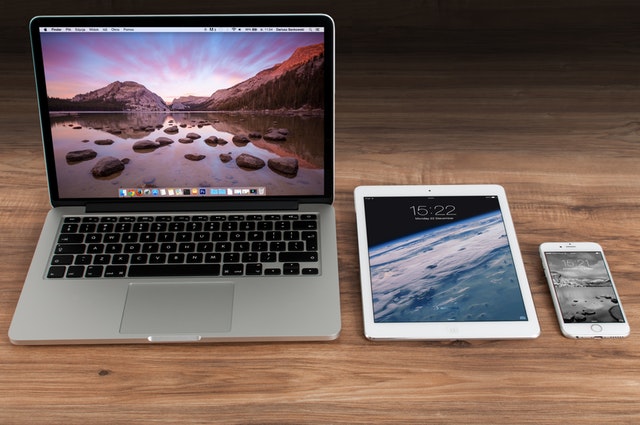
Tablets have been quite successful thanks to their sheer portability, user-friendly interfaces and the wide array of functions they can offer to you.
In several ways, the ideal tablets can practically replace a laptop, particularly for someone very active. But, is a tablet a better option for someone over a laptop? After all, laptops can also be greatly portable and possess a much broader range of tasks-friendly functions.
This article will analyze the differences between laptops and tablets to determine how they relate to one another.
Input Method
The clear difference between a laptop and a tablet is the absence of a keyboard. Tablets depend entirely on a touchscreen interface for all of its input.
This situation is fine when it involves mainly tapping, pointing, or dragging to maneuver around a program. The challenges show up when you must input text into a program such as a document or an email.
Since tablets have no keyboard, consumers need to type on virtual keyboards that have different layouts and designs.
The Size

This comparison is seemingly your biggest reason to opt for a tablet over a laptop. Tablets possess the size of a tiny pad of paper and weight of under two pounds, whereas nearly all laptops are far heavier and bigger.
The primary logic for this is the keyboard and trackpad. Include the more powerful parts that need extra cooling. For this reason, it is way easier to carry a tablet around than a laptop particularly if you are traveling.
Battery Life
Tablets in Deal Wiki are meant for efficiency due to the limited power requirements of their hardware which is different when it comes to laptops for they run more powerful hardware.
The powerful internal component of the laptop makes its battery unable to carry out extensive tasks for extended periods. So, even if laptops have a higher capacity battery, they would not be able to run that long in comparison to tablets.
It indicates that tablets can attain all day usage which only a few laptops can accomplish.
Storage Capacity
Tablets need to depend on modern solid-state storage memory as a medium to save data and programs to keep their costs and size down.
While these posses ability for high-speed access and efficient power usage, tablets have one major problem in the number of documents they can save.
Nearly all tablets come with configurations that barely allow from 16 to 128GB of storage. On the other hand, most laptops still apply conventional hard drives that carry far much more because they have a typical 500GB hard drive for storage.
Performance

Since nearly all tablets have low-powered processors, they will mainly fall behind laptops when it comes to computing activities.
For tasks such as web browsing, email, playing audio or video, both platforms will normally work similarly as all of them don’t need considerable performance. But, things will get more difficult once you begin executing more demanding activities.
Cost
The majority of tablets are budget-friendly models that can cost around $100 which are helpful for basic tasks.
The average tier tablets go from around $300 and do most tasks just okay. All these tablets are much more inexpensive than most affordable laptops which typically start at $400.
So it depends on the kind of laptop and tablet that you are going to compare. On the lower end, the edge is definitely for tablets, but when it comes to a higher end, laptops surely are ideal.
Takeaway:
In its present condition, laptops still provide a higher level of versatility when it comes to performance. They may not possess the same degree of portability or efficiency of use of tablets, but there are still plenty of concerns that tablets must resolve before they become the primary means of mobile computing.
In the end, it all depends on what kind of user you are. If you are casual and on the go, then a tablet is the best for you. On the other hand, if you need to execute extensive tasks, then a laptop is your ideal tool.



















